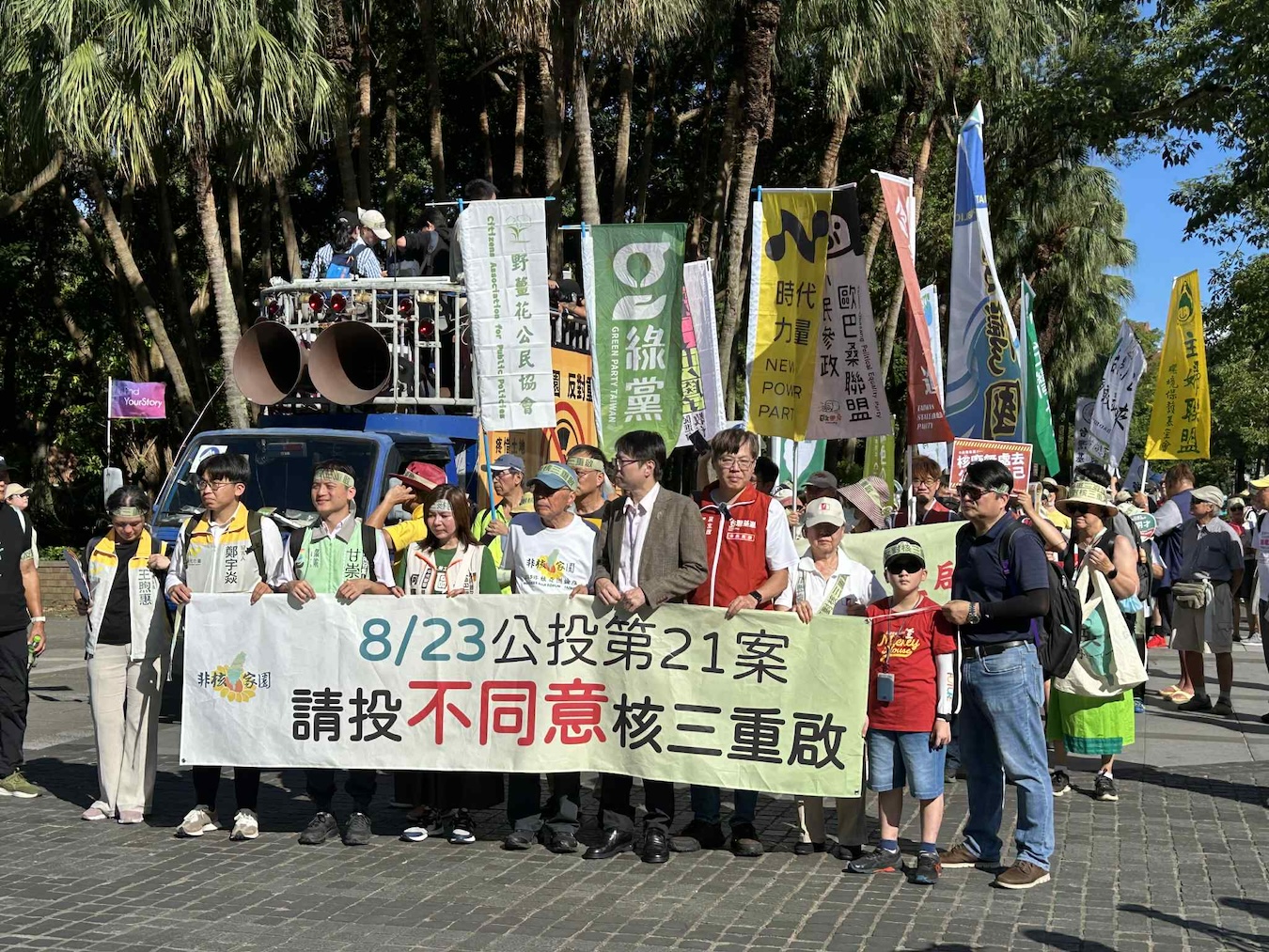語言:
English
Photo Credit: Girard Mariano Lopez
ABOUT 100 MEMBERS of civil society groups marched through Taipei on Saturday urging voters to reject a referendum on restarting Taiwan’s last nuclear power plant.
The August 23 vote will decide whether the Ma-anshan Nuclear Power Plant in southern Taiwan should resume operations if deemed safe by authorities. The plant’s second reactor was shut down in May as part of the Democratic Progressive Party’s “nuclear-free homeland” policy launched in 2016. Taiwan’s two other plants were gradually decommissioned beginning in 2018.
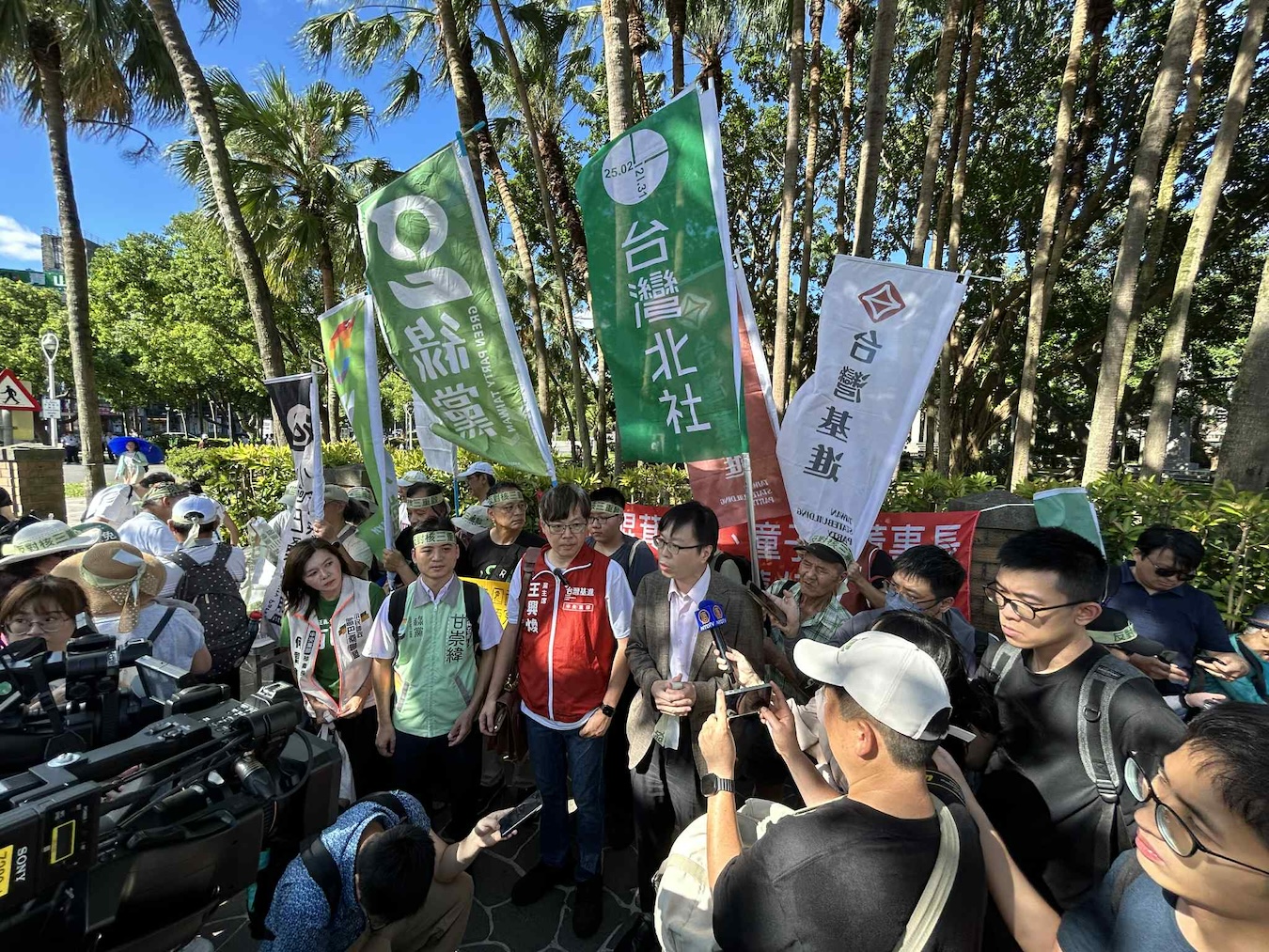 Photo credit: Girard Mariano Lopez
Photo credit: Girard Mariano Lopez
Opponents of nuclear energy, including environmentalists, human rights groups, and safety experts, highlighted the island’s seismic risks, unresolved nuclear waste storage, as well as the potential derailment of the transition to renewable energy. All of Taiwan’s nuclear facilities are located in zones considered among the world’s most earthquake-prone, raising fears of a major accident.
Waste storage remains politically fraught, with no permanent disposal site and strong public opposition to hosting one.
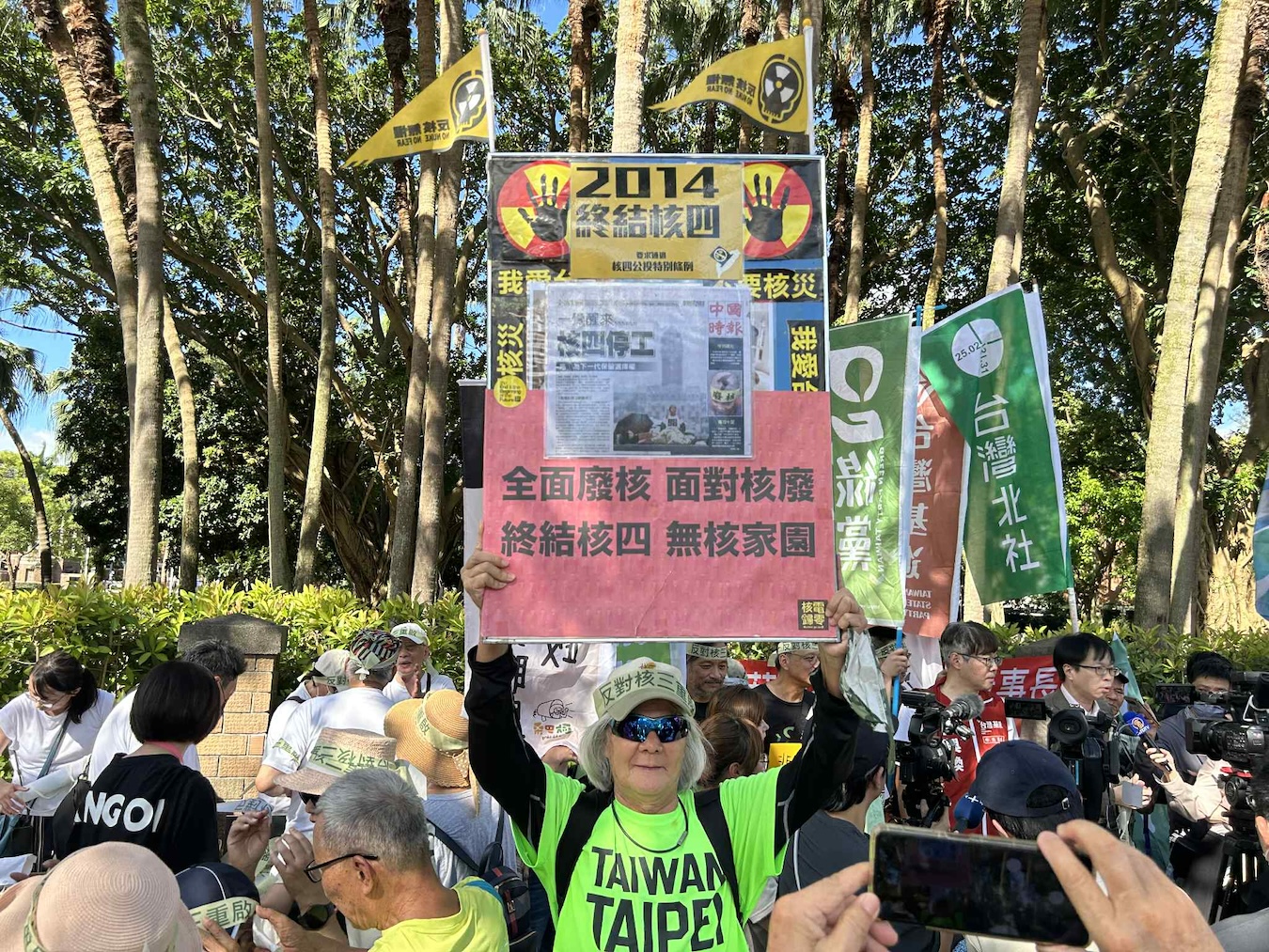 Photo credit: Girard Mariano Lopez
Photo credit: Girard Mariano Lopez
Several smaller political parties also joined the rally, many of them advocates of Taiwan independence or self-determination. Wang Hsing-huan of the Taiwan Statebuilding Party said independence and sustainability are politically intertwined.
“From the perspective of sustainability, it should integrate the environment, economy, social fairness and justice,” Wang said. “We hope Taiwan’s sustainability can be built on energy that is safe, clean and low risk—not high risk.”
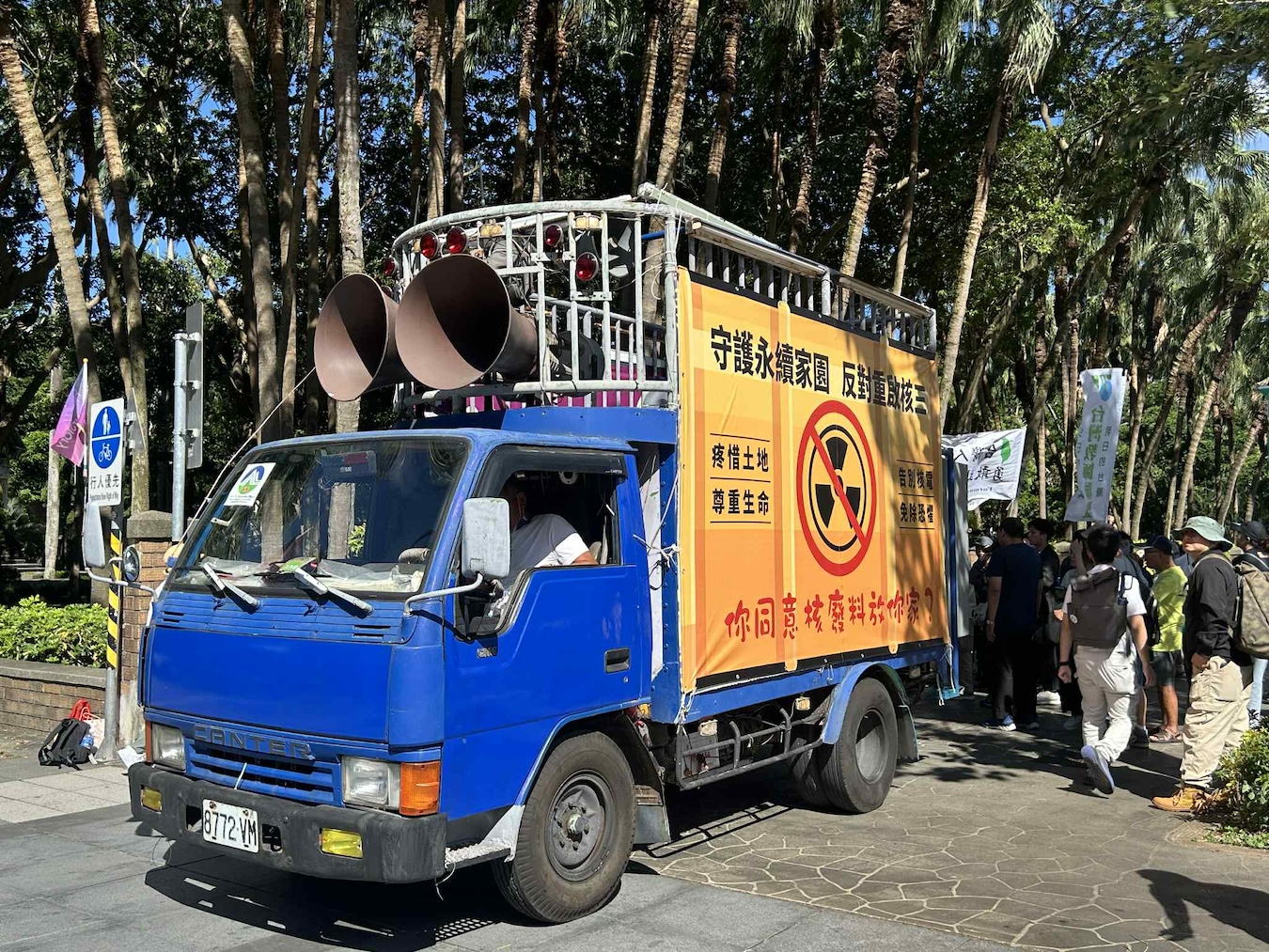 Photo credit: Girard Mariano Lopez
Photo credit: Girard Mariano Lopez
The Obasang Political Equality Party, which focuses on gender equality and children’s rights, stressed that ordinary citizens should have a greater voice in politics and warned of the danger of an accident.
“The risk is enormous. And more importantly, Ma-anshan only contributes about an additional 6% if it’s restarted,” Obasang secretary general He Yu-rong said. “Are we really willing to take on such huge risks just for 6% of our electricity?”
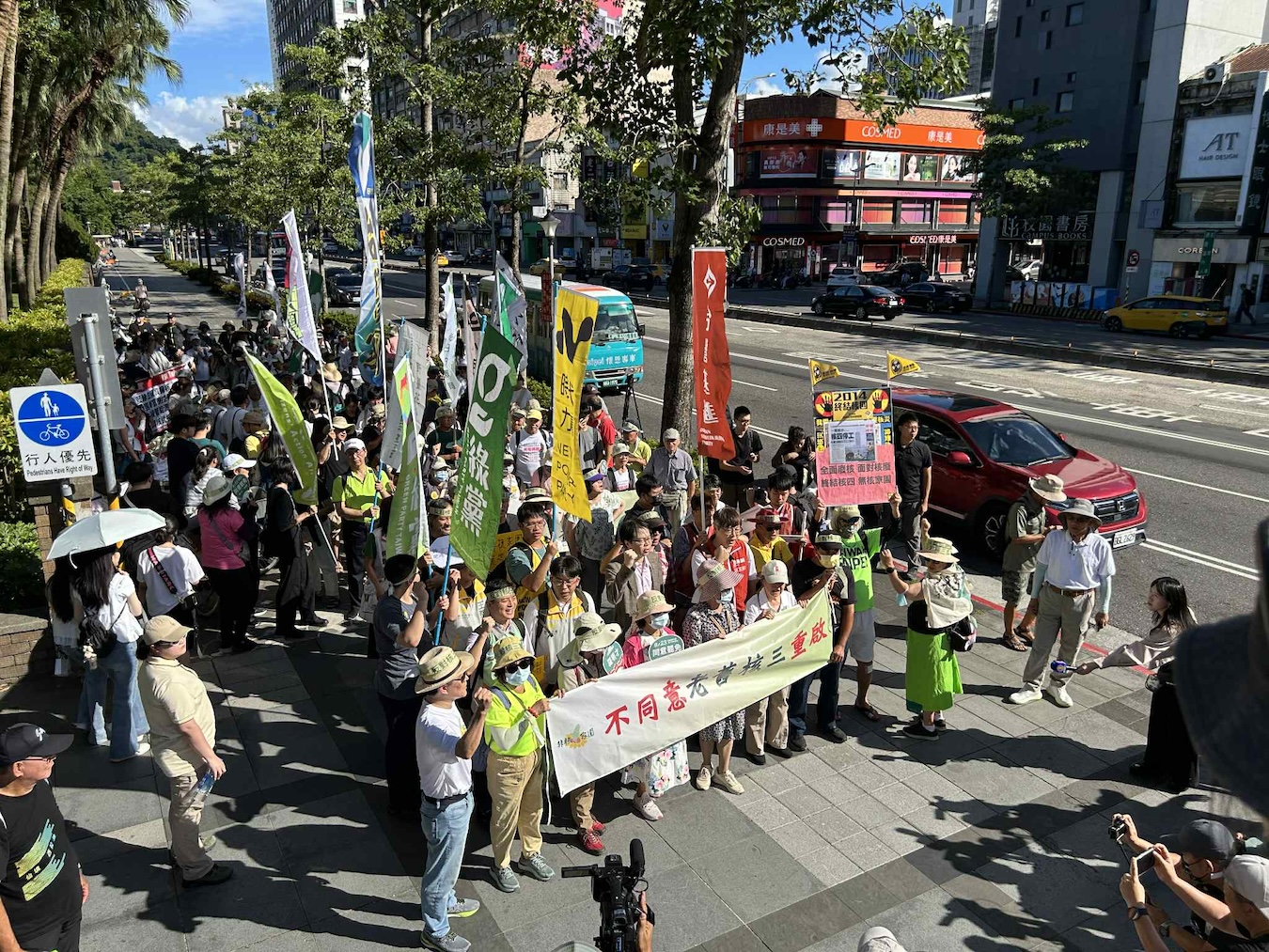 Photo credit: Girard Mariano Lopez
Photo credit: Girard Mariano Lopez
Supporters of nuclear power argue that renewable energy development has fallen short of government targets and cannot fully replace nuclear power. They also warn that Taiwan’s reliance on imported fossil fuels increases both pollution and vulnerability if China blockades the island. Huang Kuo-chang of the Taiwan People’s Party said in a recent televised debate that Taiwan would only have seven to eleven days of power reserves under such a scenario.
Anti-nuclear activists counter that the shift to renewables will be gradual, much like Taiwan’s move away from coal, and say the referendum is a chance to accelerate investment in safe alternatives.
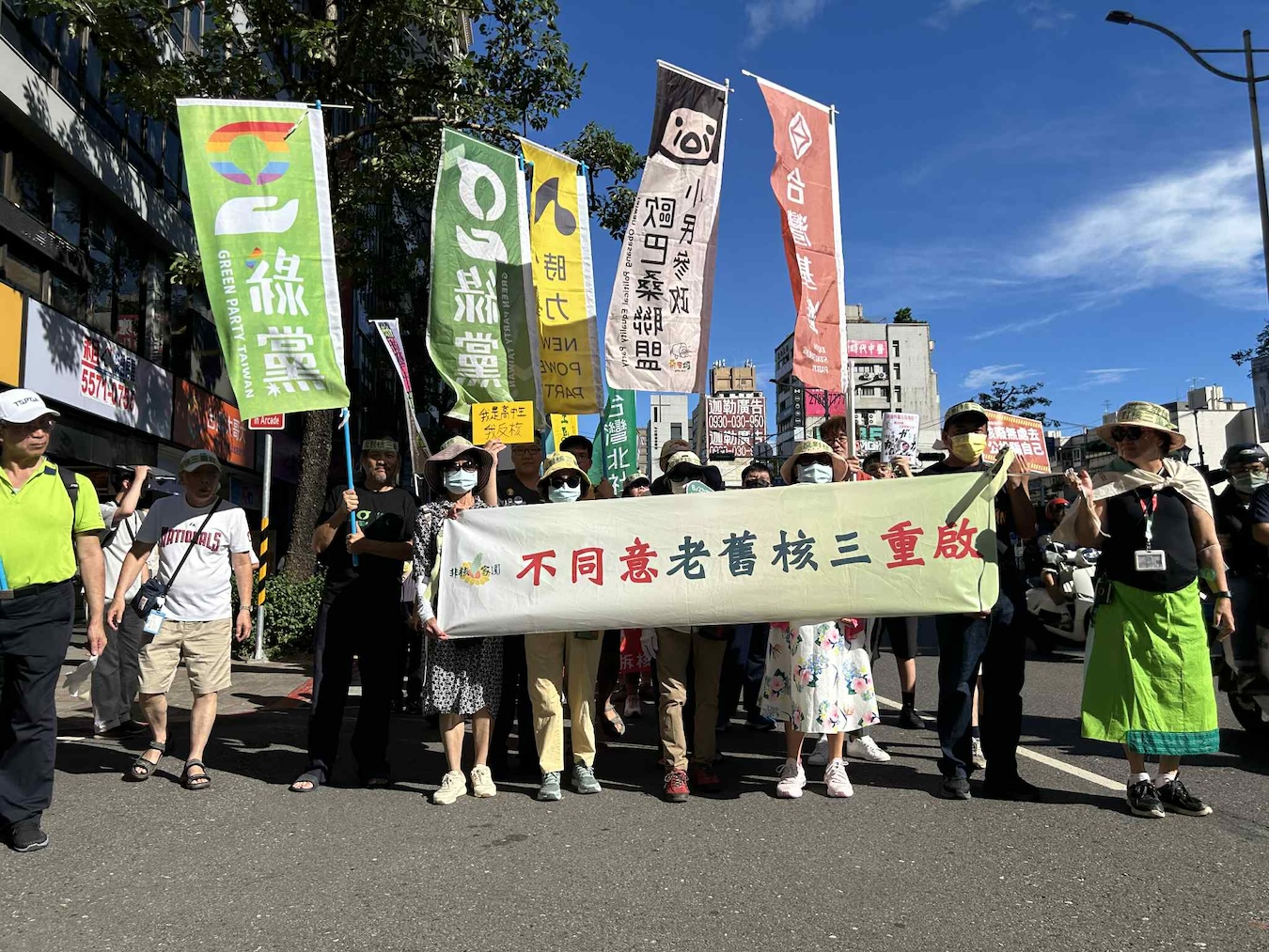 Photo credit: Girard Mariano Lopez
Photo credit: Girard Mariano Lopez
“This is exactly the area where we should be putting our efforts to strengthen capacity—not an excuse to adopt a ‘suicidal’ option,” Wang added.
The march wound through central Taipei, briefly stopping at Liberty Square before ending with speeches in front of the Legislative Yuan.
For the referendum to pass, more than 25% of Taiwan’s 5 million eligible voters must cast ballots, with “yes” votes outnumbering “no” votes.
